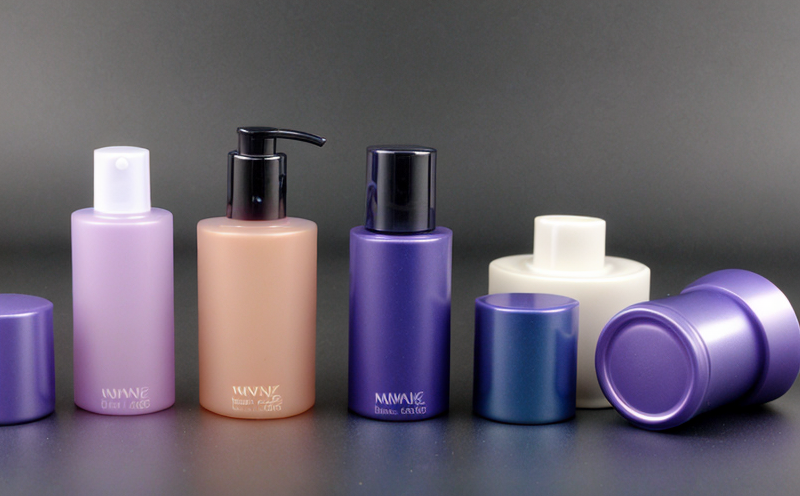UV Stability of Non-Traditional Cosmetic Packaging Materials
Unlocking the Secrets of UV Stability Ensuring Non-Traditional Cosmetic Packaging Materials Meet the Test
In todays fast-paced and highly competitive cosmetic industry, manufacturers are constantly seeking innovative ways to differentiate their products from the rest. One area that has gained significant attention in recent years is non-traditional cosmetic packaging materials. From sustainable materials like bamboo and sugarcane to cutting-edge technologies such as bioplastics and nanomaterials, the possibilities are endless. However, with these new and exciting materials comes a pressing concern ensuring their UV stability.
What is UV Stability of Non-Traditional Cosmetic Packaging Materials?
UV stability refers to a materials ability to resist degradation caused by exposure to ultraviolet (UV) radiation. In the context of cosmetic packaging materials, this means evaluating whether a particular material can withstand the intense UV light emitted by sunlight or artificial lighting without compromising its structural integrity, appearance, or performance.
For businesses operating in the cosmetic industry, understanding and ensuring the UV stability of non-traditional packaging materials is crucial for several reasons. Firstly, it directly impacts product safety and regulatory compliance. Packaging materials that degrade prematurely can release potentially hazardous chemicals into the environment or contaminate the product itself. Secondly, UV instability can lead to aesthetic issues such as discoloration, brittleness, or even disintegration of the packaging material.
Why is UV Stability of Non-Traditional Cosmetic Packaging Materials Essential for Businesses?
The advantages of using non-traditional cosmetic packaging materials are numerous
Sustainability Many non-traditional materials offer an eco-friendly alternative to traditional plastics, reducing waste and environmental impact.
Innovative Design New materials often allow for creative designs, unique textures, and captivating colors that differentiate products on store shelves.
Cost-Effectiveness Some non-traditional materials can be produced at a lower cost than their traditional counterparts, increasing profit margins.
Performance Enhancement Certain materials provide enhanced barrier properties, reducing product degradation and extending shelf life.
However, without adequate UV stability testing, these benefits can quickly become liabilities. Here are some key risks associated with inadequate UV stability
Product Contamination Degradation of packaging materials can lead to cross-contamination of products, compromising their quality and safety.
Regulatory Non-Compliance Failure to meet UV stability standards can result in costly recalls, regulatory penalties, or even loss of market access.
Brand Reputation Damage Aesthetic issues or product contamination due to inadequate UV stability can irreparably harm a brands reputation.
Benefits of Choosing Eurolab for UV Stability Testing
At Eurolab, our comprehensive laboratory service provides businesses with the tools and expertise necessary to ensure their non-traditional cosmetic packaging materials meet the highest standards of UV stability. Here are just a few benefits of partnering with us
Accurate Results Our state-of-the-art equipment and highly trained scientists guarantee precise and reliable test results.
Customized Testing Protocols We work closely with clients to develop tailored testing protocols that meet their specific needs and regulatory requirements.
Rapid Turnaround Times Our efficient laboratory processes ensure timely delivery of results, minimizing production downtime and maximizing business agility.
Frequently Asked Questions (FAQs)
Here are some common questions about UV stability of non-traditional cosmetic packaging materials
Q What types of non-traditional packaging materials do you test for UV stability?
A We test a wide range of non-traditional materials, including bioplastics, nanomaterials, bamboo, sugarcane, and more.
Q How do I determine the appropriate testing protocol for my product?
A Our expert scientists will work with you to develop a customized testing plan that meets your specific needs and regulatory requirements.
Q Can I test my packaging materials in-house or do I need to send them to a laboratory?
A While some basic tests can be performed in-house, complex UV stability evaluations typically require specialized equipment and expertise available at a laboratory like Eurolab.
Q What is the typical turnaround time for UV stability testing?
A Our efficient laboratory processes ensure rapid turnaround times, with most test results delivered within 2-3 weeks.
Q Do you offer any certifications or documentation to support regulatory compliance?
A Yes, we provide comprehensive reports and certificates of analysis to help businesses meet regulatory requirements and demonstrate compliance.
Conclusion
In todays competitive cosmetic industry, understanding the UV stability of non-traditional packaging materials is no longer a nicety its a necessity. At Eurolab, our laboratory service provides businesses with the expertise and resources necessary to ensure their products meet the highest standards of safety, quality, and regulatory compliance.
Dont risk your brand reputation or product safety on inadequate UV stability testing. Partner with us today and unlock the full potential of non-traditional packaging materials while ensuring a bright future for your business.
Eurolab Your Partner in Ensuring UV Stability
With our state-of-the-art laboratory equipment, highly trained scientists, and commitment to customer satisfaction, Eurolab is the perfect partner for businesses seeking comprehensive UV stability testing services. Contact us today to learn more about how we can help you navigate the complex world of non-traditional cosmetic packaging materials and ensure your products meet the highest standards of UV stability.




